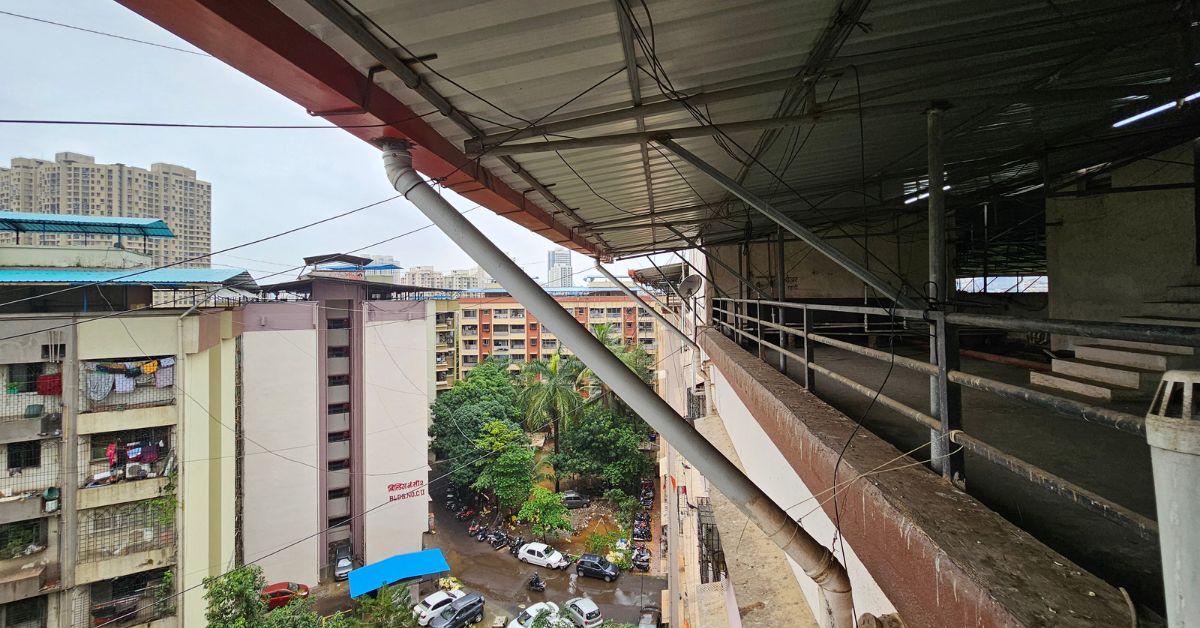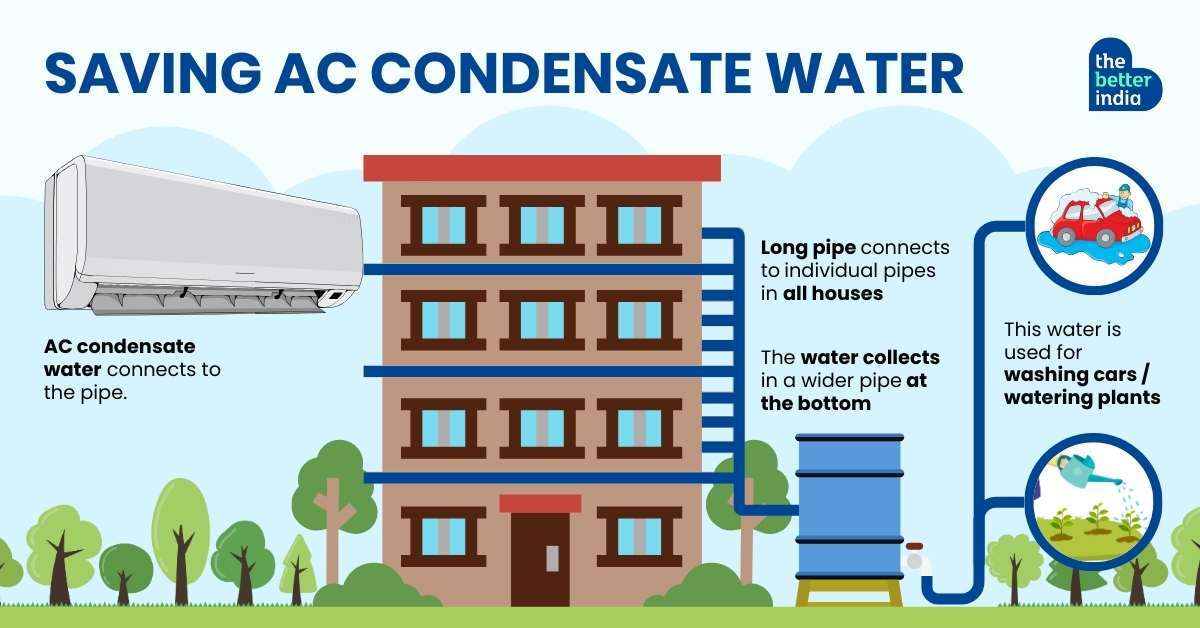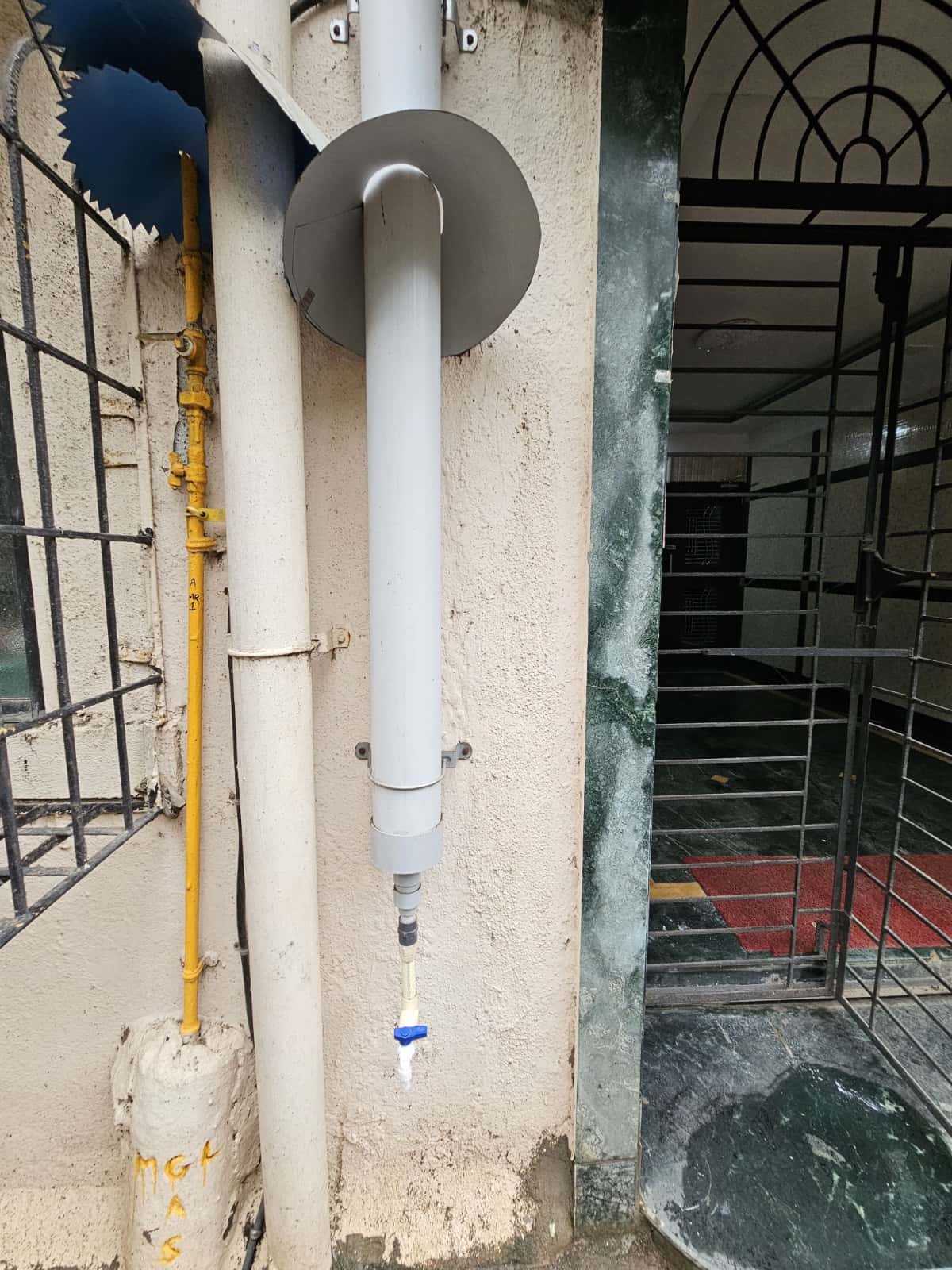Each drop of water counts. This ought to be a mantra for everybody because the world faces a extreme water scarcity. Are you aware how a lot water is used each time
Each drop of water counts. This ought to be a mantra for everybody because the world faces a extreme water scarcity. Are you aware how a lot water is used each time you flush? In older bogs put in in India, nearly 5 to 10 litres of water are used per flush. For a household of 4 utilizing the bathroom not less than 3 times a day every, that’s a staggering 3,600 litres of water per 30 days!
Whereas newer bogs include low flush choices, what can individuals with older bogs do? This query troubled the residents and administration committee members of Saprem Co-operative Housing Society in Thane, Maharashtra.
Thane, like many elements of the nation, has been dealing with a main water disaster in recent times. With reservoirs drying up, the Brihanmumbai Municipal Company (BMC) introduced a ten % water lower beginning in June 2024 to preserve the accessible water.
This has additionally impacted the water provide to the Thane Municipal Company (TMC). Consequently, it’s now as much as residents to take motion, each individually and collectively, significantly in gated communities and housing societies.
As a substitute of relying solely on the water provided by the TMC and buying further tankers, the residents of Saprem CHS determined to develop into self-sufficient of their water wants. How?
Learn on to search out out.
A panacea for water woes
Inbuilt 1997, the society has two wings and 64 flats in complete. Over the previous decade, residents grappled with main water shortages. “We had a number of days after we had water provide just for an hour or so. We additionally needed to name for a water tanker from outdoors, paying hundreds of rupees daily. It was a really troublesome time,” Avinash Shaligram, secretary, Saprem CHS, tells The Higher India.
The issue was exacerbated in households the place everybody would go to work or faculty and return to no water. After enduring this ordeal for months, the residents started brainstorming and developing with totally different options. One factor was clear — they needed to save water in any manner they might.
The society has a water tank with a capability of 20,000 litres. As they began breaking down the fundamentals of water utilization of their households, one quantity stood out — the quantity of water used within the bogs.

“We discovered that each time we flush the bathroom, it makes use of 5 litres of water. In a family of 4 members who every use the washroom 4 instances a day, it quantities to 80 litres of water per day. For your entire society, that was a whopping 5,120 litres of water per day, greater than 1/4th of the tank’s capability,” provides Shaligram.
They puzzled easy methods to forestall this pure useful resource from being ‘flushed’ down!
To seek out an alternate water supply, they performed a geological survey and dug a borewell. They struck water 350 ft under the floor and started utilizing this water for his or her bogs. This instantly solved their water woes, offering a 24-hour water provide!
Not stopping there, the residents sought a technique to recharge the groundwater. To this finish, they constructed a rainwater harvesting system. “The rainwater that was being collected on the terrace was going to waste, in a drain. We needed a system that may accumulate this water and divert it into the borewell,” says Arun Deshmukh, administration committee member, Saprem CHS.
The way it works
Corrugated sheets have been put in on the rooftop with bars on the aspect. Eight pipes have been fastened throughout the size of the rooftop to gather rainwater. These pipes are related to pipes on the bottom that channel the water to the borewell.

Put in nearly three years in the past, this technique has made the residents self-sufficient and prevents rainwater from going to waste. They’ve been utilizing this water for his or her bathroom wants and at the moment are exploring methods to make use of it for different functions. “We had the water examined but it surely was unfit for different use. We’re getting it examined once more now to see if it could possibly not less than be used for laundry garments,” says Shaligram.
Saving AC Water
As soon as this answer produced phenomenal outcomes, the keen residents appeared for additional methods to save lots of water. One other important supply of water wastage was the water from air conditioners (ACs). Nearly each home within the society has an AC, says Deshmukh.
Throughout summers, these ACs run all evening and for lengthy hours through the day, particularly on weekends and in work-from-home conditions. Usually, a one-tonne air conditioner produces 10 litres of water if used for eight hours — with this quantity growing primarily based on the dimensions of the AC. To forestall this condensate (a liquid obtained by condensation of a fuel or vapour) from going to waste, Saprem CHS members devised a technique to reserve it.
A protracted pipe runs down the constructing, with particular person connections to every home to gather the condensate from their air conditioners. This water is funnelled into a large pipe on the backside of the constructing, which is fitted with a faucet for straightforward entry. This pipe can maintain as much as 15 litres of water. This water is used to water the crops and wash autos within the society.

“We have now 25 vehicles and 80 two-wheelers. We’re in a position to make use of this water to scrub them, successfully reusing the water. In summer season months, we additionally use it to water the crops,” says Deshmukh. Even when we contemplate that it takes about 10 litres of water to scrub a automobile and 5 litres to scrub a two-wheeler, this technique saves over 19,000 litres of water per 30 days!
The society members at the moment are exploring methods to develop into fully self-sufficient for his or her water wants. Shaligram mentions that they’re comfortable to information different societies in implementing comparable techniques. The rainwater harvesting system and the AC condensate pipes every at present price Rs 1 lakh to put in.
“Water is a finite useful resource. We have to reserve it in no matter manner attainable,” he remarks.
Edited by Pranita Bhat.
Sources
‘Smaller bathroom tanks may save 10 % of water’ Printed On 8 April, 2015 Courtesy Instances Of India
‘Mumbai to face 5% water lower from Might 30, 10% from June 5 as lake ranges fall’ Printed On 26 Might, 2024 Courtesy Enterprise At the moment


